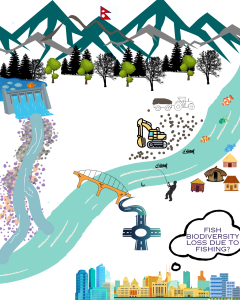
In the Backseat of Celebration: Nepal’s Indigenous Fisherfolk
This year, Nepal celebrated the International Day of the World’s Indigenous Peoples in a grand way with cultural parades, exhibitions, and programs supported by national and international organizations, including FAO and UNESCO. These events honoured the diversity of our Indigenous heritage, from language to land stewardship.






























